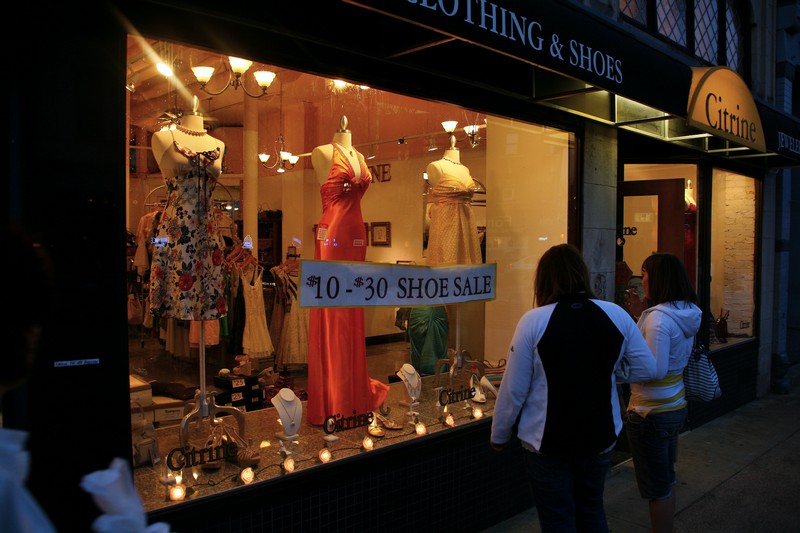The author of the nation’s strongest global warming law tells us how California is responding to climate change and how she gained the political support to get it done …
“Leading the Way on Climate Change”
a free public lecture by Fran Pavley
3:30 p.m. Wednesday, April 25
Memorial Union (see “Today in the Union” for room)
800 Langdon Street
University of Wisconsin-Madison
Fran Pavley has served three terms in the California State Assembly, where she is known as one of the most effective legislators in Sacramento. The former Mayor of Agoura Hills and long-time public school teacher is the author of landmark legislation (the Global Warming Solutions Act of 2006) on global warming that has become a model for other states and countries. She is also author of the first regulations on vehicle carbon dioxide emissions. Eleven other states and Canada have modeled their laws after Pavley’s Clean Car Regulations. She has been selected as one of Scientific American’s Top Technology Leaders in Transportation and received the 2006 California League of Conservation Voters’ Global Warming Leadership Award along with former Vice President Al Gore.
This event is co-sponsored by the Nelson Institute for Environmental Studies and the Department of Atmospheric and Oceanic Sciences at UW-Madison. For more information, please contact Steve Pomplun at the Nelson Institute or call Steve at 263-3063.
A few Suggestions for Governor Doyle Regarding the AT&T “Video Competition” Bill
AT&T’s lobbying efforts to change Wisconsin’s cable TV regulations has generated a refreshing amount of commentary. 5 years ago, during Governor Doyle’s first Gubernatorial campaign, I had a chance to briefly talk with him after a debate with Scott McCallum. I mentioned Wisconsin’s poor broadband infrastructure (we continue to stand still, which means we’re falling further behind) and how AT&T had failed to invest in fiber networks. Doyle mentioned that he was aware of this, but could not do anything about it in a first term…..
Fast forward to 2007. This map, via broadbandreports.com displays the communities that have Verizon’s fiber to the home available. Fiber networks provide much higher speeds and more citizen choice than our aging and long since paid for copper networks (we continue to pay and pay and pay for the old stuff).
Perhaps, Governor Doyle might put citizen’s interests first and sign the bill only if:
- Those who provide service via this bill must do so via symmetrical fiber to the home, and,
- Customers may purchase the symmetrical fiber to the home service for internet use only (ie, without phone or video service). Such “naked” internet service shall be available at speeds equal or greater to those offered via phone/video bundles.. Cost and terms shall not penalize naked internet buyers vis a vis bundled phone/video purchases
- Customers shall have complete access to all internet services. Vendors will not restrict any IP services.
What are the odds?
UPDATE: A friend emailed simply: “Lotsa luck”.
Interestingly, this type of an initiative would be quite a legacy for the Governor. The fiber will be connected to our homes for many, many years.
AT&T Lobbying Investments (rather than fiber networks)
AT&T, parent of troubled Cingular Wireless, continues to invest in non-network related initiatives, as this article by Steven Walters illustrates:
AT&T doles out $54,000 ahead of cable bill debate
Doyle, lawmakers say money won’t affect stands on deregulation legislation
Communications giant AT&T pushed a controversial bill to have state government license cable systems by showering more than $54,000 in campaign cash on dozens of lawmakers and Gov. Jim Doyle over the past 15 months.
Campaign-finance records show that AT&T’s political action committee gave a total of $10,000 to four legislators and the Assembly Republican Campaign Committee in the past two months, when legislators negotiated details of the complex package with AT&T’s 15 registered lobbyists.
State Street on a Spring Friday Night


“Save the Cookie”
Midwest Airline’s website dedicated to remaining independent. An Airtran takeover would be a disaster…
Cooking:Low, slow and succulentTurn the heat way, way down, then relax — for deliciously tender results.
A new oven is being billed as the greatest invention since the discovery of fire itself. This high-tech contraption, seemingly a cross between a furnace and a microwave, allegedly can roast a whole rack of lamb in 6 1/2 minutes flat. Which sounds impressive if all you want is chops on the table in less time than you would need to set it.
If you want an almost transcendental experience, though, the only route is low and slow, no special equipment required.
Cooking meat, or seafood, slowly and at extremely low temperatures does more than get the job done. It changes everything for the better — the texture turns more tender, the flavor becomes more concentrated — which is why chefs around the world, such as Ferran Adrià, David Bouley and, closer to home, Govind Armstrong, are so enamored of sous-vide. They seal food in plastic, then poach it at super-low temperatures. But it’s astonishingly easy to get the same effect using only the appliance you have, not the one you dream of: Turn the oven to a setting just above what you would use to keep pancakes warm, or on the stove, bring a pot of water to just below a simmer. Insert ribs or sea scallops or whatever.
And in very little time you will be biting into the most true-to-itself pork or shellfish you have ever experienced.
Used Cars Rule
Every year over ten million vehicles pass through U.S. auto dealer auctions. This decades old free market has always been dependent on you, the consumer. Dealers will bid up those models that are popular with buyers, while those with a limited audience are stuck in what’s commonly called ‘wholesale heaven’. This is a place where thousands of unappreciated and unloved models go until the market dictates otherwise. Over the course of time, consumers dictates the winners… and the losers.
Over the last few years, The Big 2.5 have been downsizing their domestic production capacity to match falling demand, and compensate for their decision to wean themselves from low-profit fleet sales. Enormous assembly plants that once produced hundreds of thousands of new vehicles are now shuttered. The theory: as production sinks, new car prices will eventually hold firm and profits will follow. Unfortunately, the latest patchwork of new product has already come apart, and th
Bedbugs Bounce Back
Walter has stopped hugging his friends. He is throwing out his clothes and furniture, and he rarely comes out of his Tenderloin hotel room anymore.
He’s not suicidal, but darn near. He has bedbugs.
Nearly eradicated in the United States 50 years ago, resistant strains of “super” bedbugs are infesting mattresses at an alarming rate. In what’s being touted as the biggest mystery in entomology, all 50 states are reporting outbreaks of the blood-sucking nocturnal critters.
Pest control companies nationwide reported a 71 percent increase in bedbug calls between 2000 and 2005. Left alone, a few bedbugs can create a colony of thousands within weeks.
“We never treated bedbugs until 2002. Now we have a dedicated bedbug crew working on this every day,” said Luis Agurto, president of Pestec in San Francisco.
Agurto’s arsenal includes a vacuum, steam heat to cook the bedbug eggs and targeted spraying of insecticides. It takes three, eight-hour visits and about $500 to $750 to exterminate one room. A whole house would cost closer to $5,000.
Comical Cingular (AT&T)

Where to begin?
Prior to a recent Asia trip, I needed to obtain a SIM Card for my old Cingular (AT&T) phone that would work while on travel. (I now use a Verizon phone due to our experience with Cingular’s poor network coverage – dropped calls on John Nolen Drive, for example).
I called Cingular and explained my requirements: a prepaid SIM Card that would work for 30 days while on travel overseas. The telesales representative explained their different services, including data, worldwide calling and various monthly minute plans.
I provided my credit to close the transaction and a few days later, the Cingular SIM card arrived. I also requested the codes to “unlock” my old phone. Unfortunately, despite our prior long term Cingular arrangement, they insisted that I had to use the phone for 90 days before they would provide the unlock keys. This would prove to be a problem when I found that the SIM card Cingular sold me did not, in fact, work internationally.
Fortunately, a friend let me use an old phone, which would accept any SIM Card – easily purchased in most countries.
I called Cingular upon my return to express my disappointment. Farrah in Halifax was as helpful as could be expected, given their organization. She phoned their “sales” department to see if I could obtain a refund. The “sales” person told her that they “don’t sell SIM Cards”! I mentioned that while I’m unhappy with Cingular, I’m glad she had that experience with sales, particularly while I was on the line.
Bottom line: If you are looking for a world phone, look elsewhere. I’ve heard good things about T-mobile, though your mileage may vary.
I.R.S. Audits Middle Class More Often, More Quickly
Middle-class Americans, listen up: the I.R.S. is much more likely to audit you this year. Those caught cheating can expect to pay about $4,100 more on average in income taxes.
Since 2000, authorities at the Internal Revenue Service have nearly tripled audits of tax returns filed by people making $25,000 to $100,000 as part of a broad change in audit strategy.
Audits of these middle-class taxpayers rose to nearly 436,000 last year, up from about 147,000 returns in 2000. For these 61 million individuals and married couples, who make up nearly half of all taxpayers, the odds of being audited rose from 1 in 377 to 1 in 140.
Kevin Brown, the I.R.S. deputy commissioner for services and enforcement, said the audits “were out of whack” in 2000, with far too little attention paid to the middle class and to the very highest income generators, those making $1 million or more. “We try to run a balanced audit program,” Mr. Brown said.